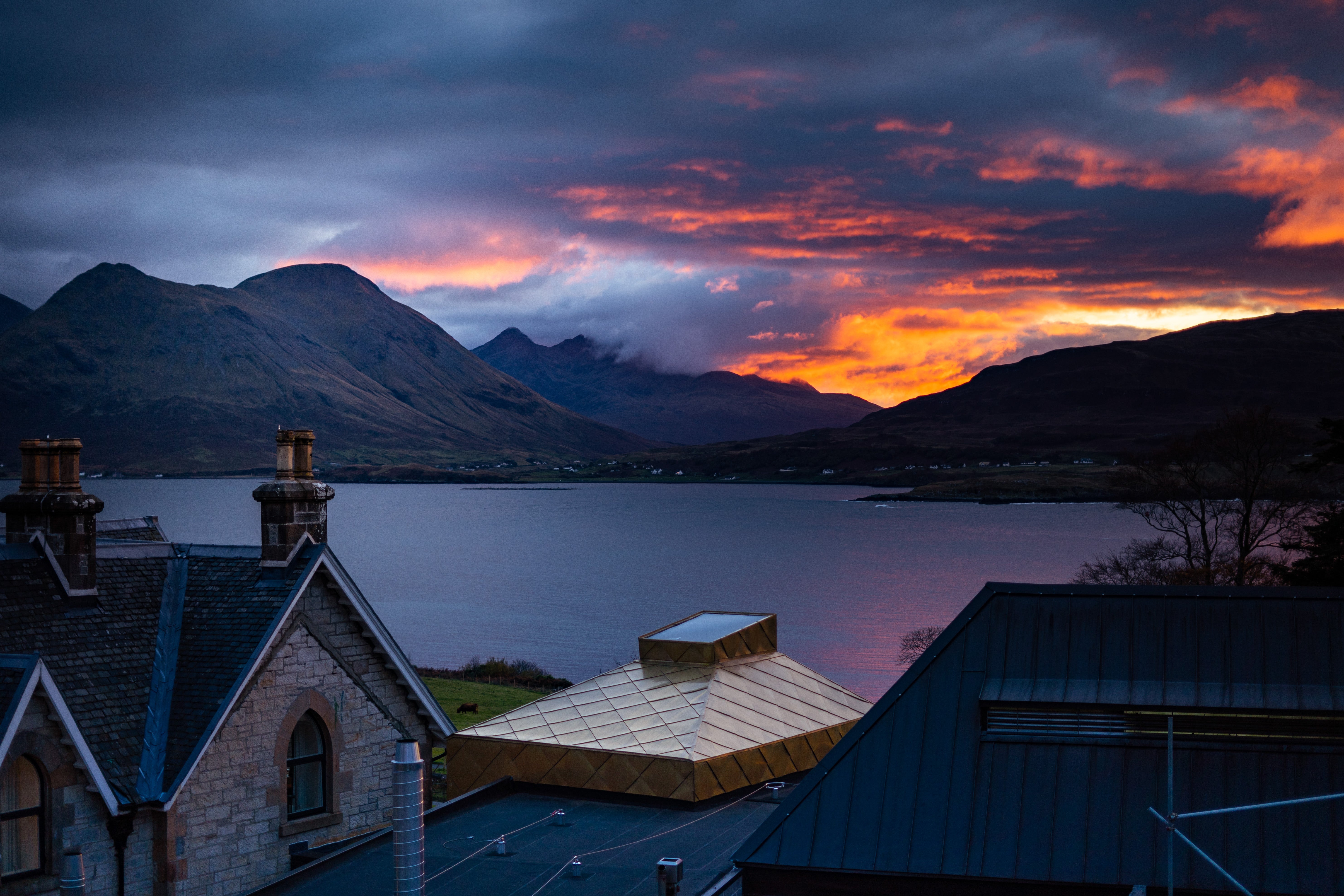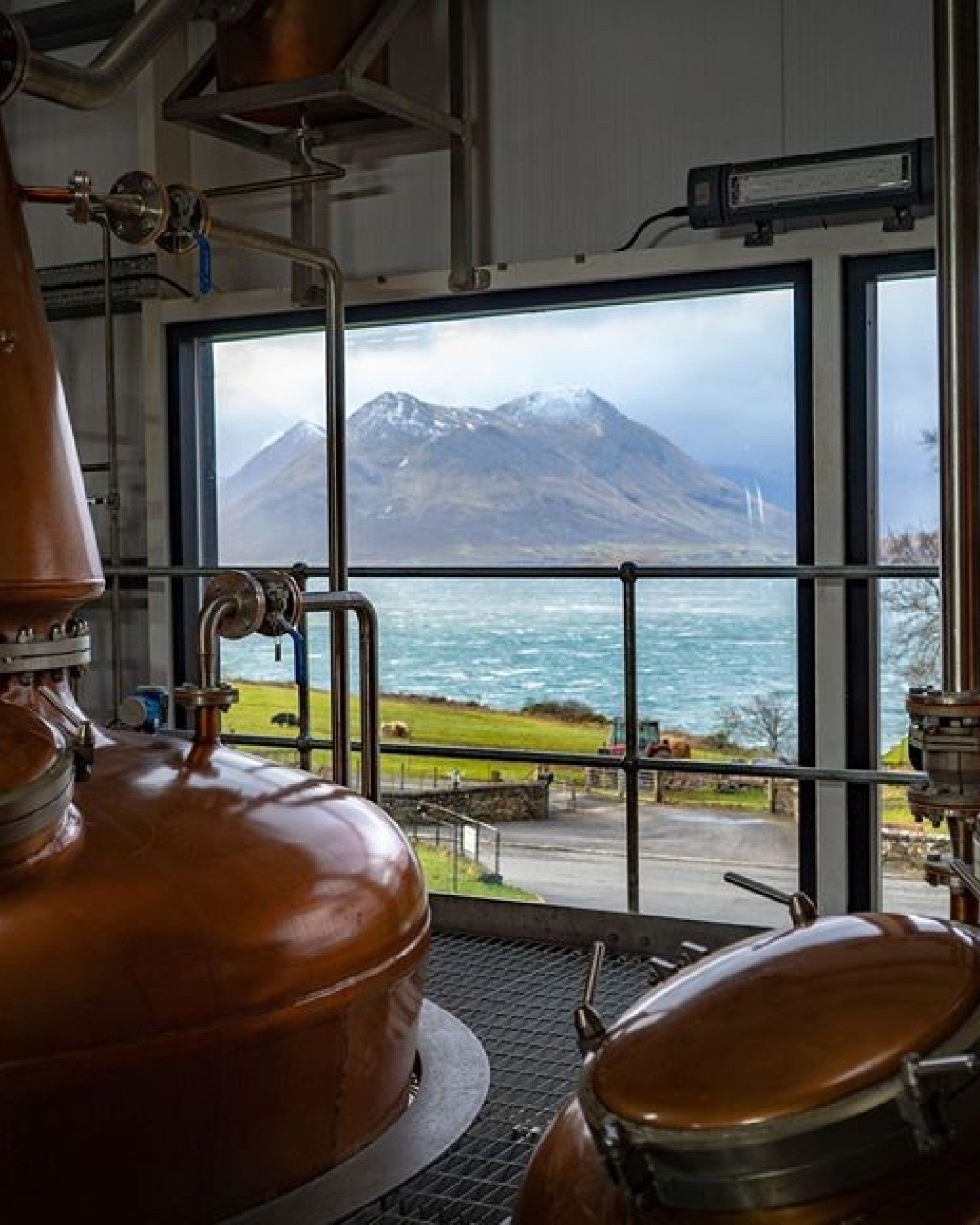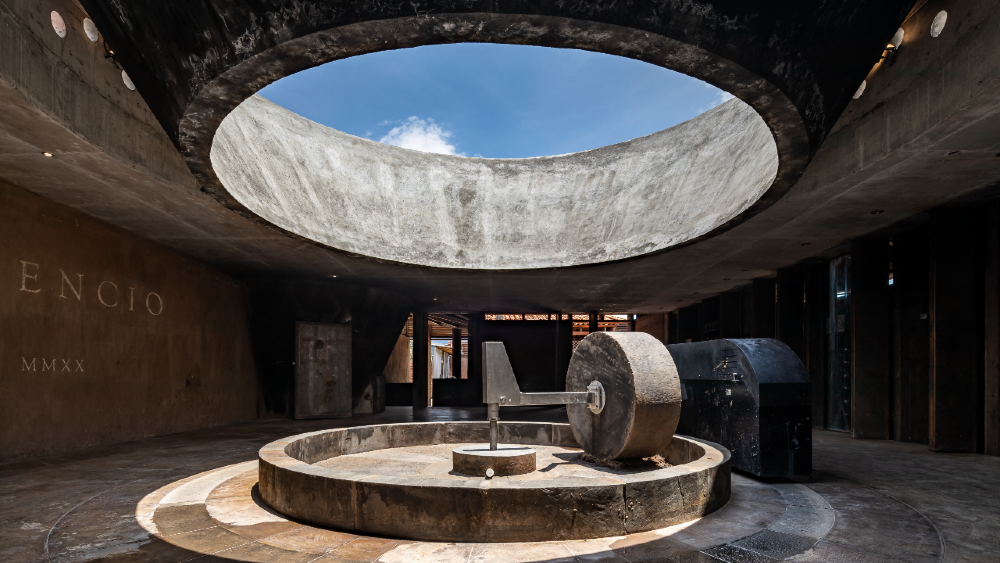The Independent's journalism is supported by our readers. When you purchase through links on our site, we may earn commission.
Nightcap o’clock: How distillery hotels became a worldwide phenomenon
A well-stocked cocktail bar is no longer cutting it. Now we want to stay, taste and see where the sausage – or, more likely, whisky – gets made, says Lucy Thackray


Your support helps us to tell the story
From reproductive rights to climate change to Big Tech, The Independent is on the ground when the story is developing. Whether it's investigating the financials of Elon Musk's pro-Trump PAC or producing our latest documentary, 'The A Word', which shines a light on the American women fighting for reproductive rights, we know how important it is to parse out the facts from the messaging.
At such a critical moment in US history, we need reporters on the ground. Your donation allows us to keep sending journalists to speak to both sides of the story.
The Independent is trusted by Americans across the entire political spectrum. And unlike many other quality news outlets, we choose not to lock Americans out of our reporting and analysis with paywalls. We believe quality journalism should be available to everyone, paid for by those who can afford it.
Your support makes all the difference.In The Independent’s travel trends column, Trendwatch, we dig into the types of trip, modes of transport and top buzzwords to watch out for.
Crack open the tonic and prepare the chilled glasses – this one’s a trend that has been steadily growing for a few years now and shows no signs of abating: the boozy hotel.
In recent years, the UK has seen a handful of delightful, whisky-and-gin-themed hideaways crop up in or attached to distilleries. Among them are Raasay Distillery in the Inner Herbides – Scotland’s only whisky maker where you can stay in the same building as the fermenting drams; The Distillery in London, a genteel British crashpad where you can blend your own gin above a Notting Hill pub; Guernsey’s chic Bella Luce (home to Wheadon Gin); and Scotland’s cosy Bowmore Cottages, set on the Bowmore whisky estate in Islay.
This month, Hensol Castle Distillery – set in a gothic castle with fairytale turrets and a history dating back to 1419 – opens 26 bedrooms above its craft gin distillery, where you can drop in to make your own botanical blend, attend a mixology workshop or tuck into a Welsh gin afternoon tea. It runs everything from a “Gintroduction” 101 to a food-led “Distil While You Dine” experience.
A distillery becomes a destination in itself. It can be set in a remote, ideally naturally beautiful location, but has no need to be part of an established tourist trail
The idea is that a distillery becomes a destination in itself. It can be set in a remote, ideally naturally beautiful, location, but has no need to be part of an established tourist trail. The immersive, luxurious experience of going, tasting, eating, drinking (and maybe creating your own potion) makes it a fully fleshed-out break for foodies.
It’s not just a UK phenomenon, either. Across the pond in New York State, Hudson House is set in an old monastery in the Hudson Valley, less than two hours’ drive north of Manhattan. At the moment it’s a tranquil waterfront distillery brewing up small-batch rye, bourbon and vodka, with tours on offer – but its next move is to open a series of boutique hotel rooms, along with a dock for people to arrive by boat or set off on river cruises hosted by the distillery.

Down Mexico way, the worldwide trend for tequila and mezcal – formerly seen as a last-resort student union shot and a working-class Mexican homebrew, respectively – has conjured two magical new distillery hotels. The southern city of Oaxaca’s most exclusive new stay is the six-room Casa Silencio. A working mezcal distillery and boutique hotel, this design dazzler has strikingly earthy, rustic design with features made of reclaimed wood, steel and stone - plus a sexy firepit for tastings of the smoky house spirit, Mezcal El Silencio, made onsite.
But some say you should go straight to Mexico’s spirit heartland, the northern town of Tequila in the state of Jalisco, where Casa Salles hotel opened in November. As well as being a smart four-star with a chic cocktail bar and rooftop yoga sessions, it’s owned by and adjacent to the El Tequileño tequila distillery, where you can take tours and meet the master distillers. On top of which there are some 28 tequila distilleries in the wider town, not to mention agave fields to explore on horseback and the Museo Nacional de Tequila for the full lowdown on Mexico’s most famous export. Salud!
Drinkers got into different brands, followed cocktail-making social media accounts and – with worldwide shipping disrupted – took an interest in individual, local distillers
Spirits hotels are a logical follow up to vineyard hotels, which have been knocking around for decades. As winemakers have found, having a unique, personal experience like a tour, tasting or workshop, plus access to a comfy room a short wander away, is a bit of a magic formula. And since the pandemic, interest in craft spirits, individual makers and the art of cocktail hour have all shot up. According to Bacardi’s annual trends report in 2021, “20 per cent of consumers are now keen to explore drinks that weren’t on their radar pre-lockdown, including premium versions of their favorite spirits.”
Home purchases of premium spirits soared from March 2020, and the trend has yet to dip. Diageo reported that its tequila sales had gone up by 80 per cent during 2020. Drinkers got into different brands, followed cocktail-making social media accounts and – with worldwide shipping disrupted – took an interest in individual, local distillers.

“I think consumers are becoming more discerning and looking beyond what’s sitting on the shelf – they’re actually wanting to know where the product they’re drinking is produced, how it’s produced,” says Raasay Distillery’s commercial director, William Dobbie.
In the case of whisky – Raasay makes a single malt as well as its own gin – the drink is incredibly bound up in the geographical location in which it’s made. Scotland’s different whisky-producing regions have long been understood to influence their products with their distinct soil, grain, water and proximity to the sea.
“The place where it’s made is of paramount importance to the whisky – with us, every step of the process from the barley to the bottling is done here on Raasay so it’s an encapsulation of the island,” says Dobbie. Even its bottles are made by moulding the glass against the rocks and fossil imprints of the island.
Though the distillery only opened its rooms in 2018, the team has already had visits from tourists from the US and Asia, and hopes to make the island even more of a destination for whisky lovers. “At the moment we’re expanding our experience – we already have our six ensuite bedrooms, but we’re in the process of building a big bar and tasting area. When someone comes from their breakfast table and walks through the production area, they’re not leaving; their whole experience happens in the one building,” says Dobbie.
The place where it’s made is of paramount importance to the whisky
Even the pioneers are still innovating: at the US’s original distillery hotel, Historic Cavalier Hotel & Beach Club (established in 1927) in Virginia Beach, you’ll soon be able to buy your own barrel of their esteemed Bourbon, after tasting a few. It’ll then be bottled up with bespoke labels designed with the buyer (and you get to keep the barrel, just for fun).
Strong measures and weekend breaks pair so well together that even hotels near to distilleries or production regions are jumping on the bandwagon, adding copper stills to their hotels or partnering with nearby producers on tours and experiences for their guests. Scotland’s Glenmorangie House has provided accommodation to corporate visitors to the Glenmorangie Distillery since the 1990s – but last autumn it received a world-class revamp and polish up, ready for a whole new crowd of spirit enthusiasts.
And having your own spirit or liqueur is equally in vogue. The Loch Leven Hotel team converted two farm byres into a craft distillery for its Devil’s Staircase gin – its master distiller created three blends, which the local villagers were invited to taste before voting on a winner – while Copper Dog whisky was born in Speyside bolthole the Craigellachie Hotel before it hit the bar scene.
With endless scope for partnerships with local restaurants, food suppliers and other tourism experiences (guided tours, local attractions), this trend is great news for small businesses and remote swathes of the UK alike – not to mention a whole different scene to tap into for foodie travellers. Just be sure to go with enough room in your luggage for a souvenir bottle or two.
Join our commenting forum
Join thought-provoking conversations, follow other Independent readers and see their replies
Comments